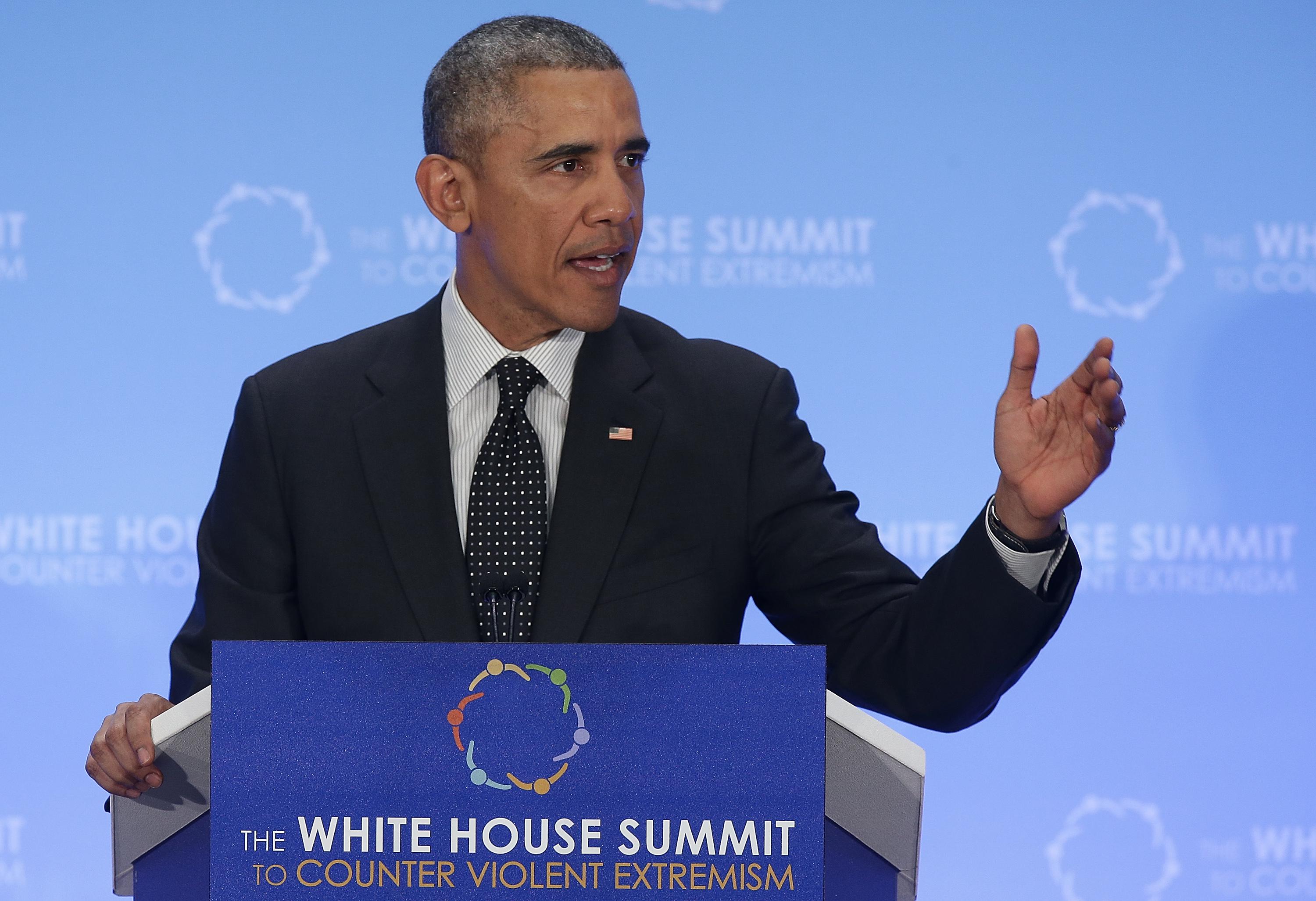At a White House summit on “Countering Violent Extremism” on Wednesday, President Obama explained why he and his administration, with remarkable consistency, avoid using terms like Islamic, Islamist, jihadist, or even religious to describe terrorist groups.
“Al Qaeda and ISIL and groups like it are desperate for legitimacy. They try to portray themselves as religious leaders, holy warriors in defense of Islam,” he said. “We must never accept the premise that they put forward, because it is a lie. … [They] are not religious leaders—they’re terrorists.”
The administration’s stance has resulted in predictable flack from critics who charge him with mischaracterizing the enemy out of a fear of offending Muslims.
Obama’s comments, and the opposing opinions of the Bill O’Reillys of the world, take place in the context of a broader debate over how seriously we should take ISIS’s religious motivations. In a provocative and well-reasoned essay for the Atlantic, the journalist Graeme Wood argued this week that while it’s tempting to dismiss ISIS as nihilistic psychopaths, and some of its followers undoubtedly fit that description, “The reality is that the Islamic State is Islamic … the religion preached by its most ardent followers derives from coherent and even learned interpretations of Islam.”
I think it goes too far to suggest—as Obama did this week—that any acknowledgment that ISIS is a religiously motivated group either lends it legitimacy or indicts Islam as a whole. To use an American analogy, the LDS church bristles at media descriptions of breakaway polygamous sects as “Mormon,” but it would be misleading to pretend that the motivations of these fundamentalist groups have nothing whatsoever to do with Mormon theology, despite their differences with current mainstream Mormon beliefs.
But how to talk about terrorist organizations is not just, or even primarily, a domestic issue. When it comes to ISIS and al-Qaida, Obama is speaking to an international audience, and his language mirrors that of political and religious leaders in the Muslim world. Egypt’s top religious authority, for instance, has denounced the “widespread error” of referring to ISIS as the Islamic State, arguing that it has violated the tenets of Sharia and tarnishes Muslims. The Arabic acronym daesh has gained popularity as a way to refer to the group without giving it credit for being either “Islamic” or a “state.” The Daesh terror gang has lately become the Jordanian government’s preferred nomenclature.
The problem facing the coalition is that many of the countries and groups that are against ISIS don’t trust each other at all. In particular, citizens of many of the countries involved don’t trust the United States and believe it is inherently hostile toward Islam. Using the kind of language both secular and religious authorities in the Middle East use to talk about ISIS won’t fix that problem, but if it helps even marginally, it’s probably worth handing Sean Hannity a cheap talking point. The goal isn’t really delegitimizing ISIS, it’s legitimizing the U.S.
